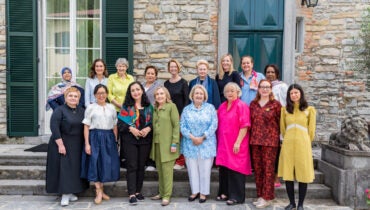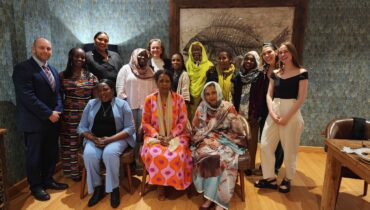This essay by Ambassador Melanne Verveer was originally included in a publication by the Wilson Center’s Women in Public Service Project entitled Beijing+20: Looking Back and the Road Ahead, Reflections on Milestones in Women’s Leadership in the 21st Century.
Twenty years ago, I joined then-First Lady Hillary Clinton on a trip to Beijing for the Fourth World Conference on Women. It was there that she declared, for all the world to hear, that “human rights are women’s rights, and women’s rights are human rights.”
Women globally have made significant progress in the last 20 years: more girls are in school than ever before, maternal mortality is decreasing, and women’s economic participation is growing. Laws have been enacted to combat violence against women, but, still too often, they are not enforced and policies are not implemented. Women are also frequently shut out of political leadership. Despite the undeniable progress, much remains to be achieved for women and girls to enjoy full equality—not just on paper, but in reality. This discrepancy that divides rhetoric from reality is not just a women’s issue. Research and experiences show that when women and girls progress, all of society progresses.
Our world is plagued by dozens of armed conflicts that threaten the safety and security of millions of men, women, and children on a daily basis. Women and girls bear a disproportionate toll. Rape is a strategic tool of war, and women are sidelined in the processes where decisions are being made about them and their families. It is essential that women have a place at the table in peacemaking and that they actively participate in peacebuilding.
We also know that economic prosperity is critical to peace and security. Women represent 80 percent of the global purchasing power, and investing in women helps to grow economies and stabilize communities. Our economic progress as a global community will stagnate if women remain disempowered, disenfranchised, and excluded from decision making positions in governance and the economy.
Including women’s voices and perspectives in peacemaking ultimately helps entire societies reconcile, rebuild, and achieve a just and lasting peace. Yet, women are consistently underrepresented in peace processes. Of some 39 active conflicts over the past 10 years, women have made up only 4 percent of peace negotiation teams. Moreover, only 16 percent of some 585 peace treaties drafted in the past 20 years contain references to the critical role of women. This exclusion is not only shortchanging women, but also undermining peace and security.
As we mark the 20th anniversary of the Platform for Action adopted at Beijing in 1995, and the 15th anniversaries of the passage of UN Security Council Resolution 1325 and the establishment of the Millennium Development Goals, let us renew the commitment to women’s progress and a better world that these pronouncements represent. We have yet to fully realize their objectives and so we must seize the moment to do more.
Growing women’s political decision-making capacities and opportunities, especially in conflict-affected and post-conflict settings, remains the great unfinished business of the Beijing Platform for Action. This will require innovation, collaboration, and determination, but I believe that by working together—in government, civil society, and the private sector – we can create progress and level the playing field. It is our collective responsibility to fulfill the promise we made 20 years ago, that women’s rights are human rights, once and for all. We cannot settle for anything less.


